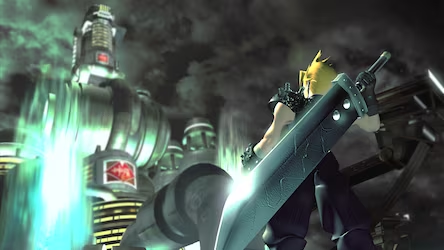Platform | PlayStation, PC, Nintendo Switch, Xbox One |
|---|---|
Publisher | Square Enix |
Genre | Turn-Based RPG |
Release Date | 01/31/1997 |
Final Fantasy 7, released on the PlayStation 1 in 1997, is often heralded as one of the most influential video games of all time. It not only revolutionized the RPG genre but also left a lasting impact on the gaming industry as a whole. This article delves into the intricacies of the game, exploring its story, gameplay, graphics and sound, and its enduring legacy.
Story
The narrative of Final Fantasy 7 is a rich tapestry of complex characters, intricate plotlines, and deep emotional themes. Set in the dystopian world of Gaia, the story follows Cloud Strife, a former member of the elite military group SOLDIER. Cloud joins an eco-terrorist group called AVALANCHE to combat the oppressive Shinra Electric Power Company, which is draining the planet’s life force to fuel its technological empire.
As the plot unfolds, players are introduced to a diverse cast of characters, each with their own backstories and motivations. From the fierce and determined Tifa Lockhart to the mysterious and enigmatic Vincent Valentine, the game’s characters are brought to life through detailed storytelling and character development.
The narrative takes players on a journey through sprawling cities, ancient ruins, and mystical forests as they unravel the truth behind the Shinra Corporation and its sinister plans. The story also delves into themes of identity, loss, and redemption, with Cloud’s personal journey of self-discovery serving as a central narrative thread.
Gameplay
Final Fantasy 7’s gameplay is a masterful blend of traditional RPG mechanics and innovative features. The game introduced the Active Time Battle (ATB) system, which added a sense of urgency and strategy to combat. Players must carefully manage their party’s actions, taking into account the timing and sequence of attacks, spells, and abilities.
The Materia system is another standout feature of the game. Materia are magical orbs that can be equipped to characters, granting them access to spells, abilities, and stat boosts. This system offers a high degree of customization, allowing players to tailor their party’s abilities to suit their preferred playstyle.
Exploration is a key component of the game, with players navigating a vast world filled with hidden treasures, side quests, and secret bosses. The game’s open-world design encourages players to venture off the beaten path and discover the myriad secrets hidden within Gaia.
Mini-Games and Side Quests
Final Fantasy 7 is renowned for its plethora of mini-games and side quests, which provide a welcome diversion from the main storyline. From the adrenaline-pumping motorcycle chase to the strategic battles at the Gold Saucer amusement park, these mini-games add depth and variety to the gameplay experience.
The game also features a variety of side quests, such as hunting for rare Materia or acquiring powerful weapons. These quests not only reward players with valuable items but also offer additional character development and world-building.
Graphics and Sound
At the time of its release, Final Fantasy 7 was a visual and auditory marvel. The game utilized pre-rendered backgrounds and polygonal character models to create a visually stunning world. The cinematic cutscenes, in particular, were groundbreaking and set a new standard for storytelling in video games.
The game’s soundtrack, composed by the legendary Nobuo Uematsu, is equally iconic. From the hauntingly beautiful “Aerith’s Theme” to the adrenaline-fueled “One-Winged Angel,” the music of Final Fantasy 7 is an integral part of its emotional impact. The soundtrack masterfully complements the game’s narrative, enhancing the emotional depth of key scenes and battles.
Legacy and Reception
Final Fantasy 7’s impact on the gaming industry cannot be overstated. Upon its release, the game was met with critical acclaim and commercial success, selling over 10 million copies worldwide. It introduced a new generation of players to the RPG genre and set a precedent for future games in the series.
The game’s influence is still felt today, with many modern RPGs drawing inspiration from its storytelling, gameplay mechanics, and cinematic presentation. Final Fantasy 7’s success also paved the way for the localization of Japanese RPGs in the Western market, broadening the global appeal of the genre.
The game’s enduring popularity led to the creation of an expansive multimedia franchise, including spin-off games, an animated film, and a highly anticipated remake. The remake, released in 2020, reimagined the original game with modern graphics and gameplay mechanics, introducing a new generation of players to the world of Gaia.
Conclusion
Final Fantasy 7 remains a landmark title in the history of video games. Its compelling story, innovative gameplay, and breathtaking audiovisual presentation have earned it a place in the pantheon of gaming greats. The game’s legacy continues to resonate with players and developers alike, solidifying its status as a timeless classic. As we look to the future, the impact of Final Fantasy 7 will undoubtedly continue to shape the gaming landscape for years to come.














